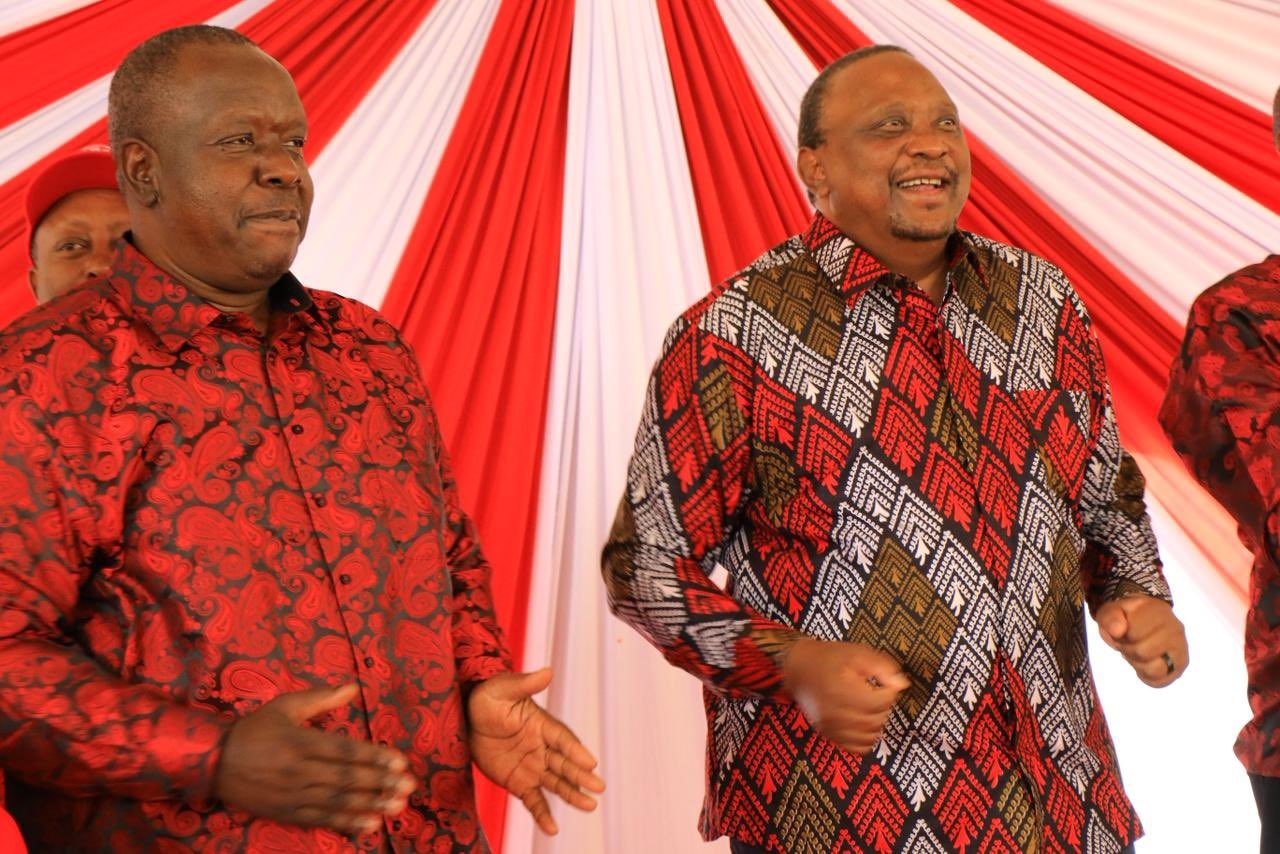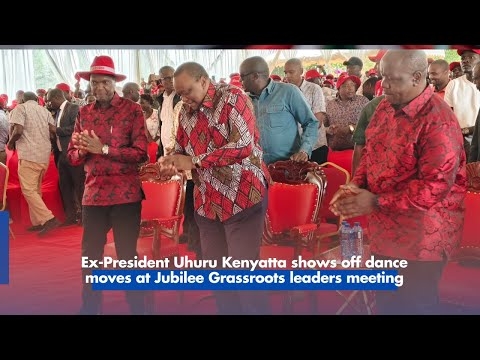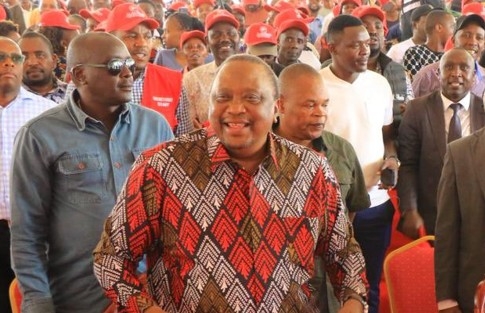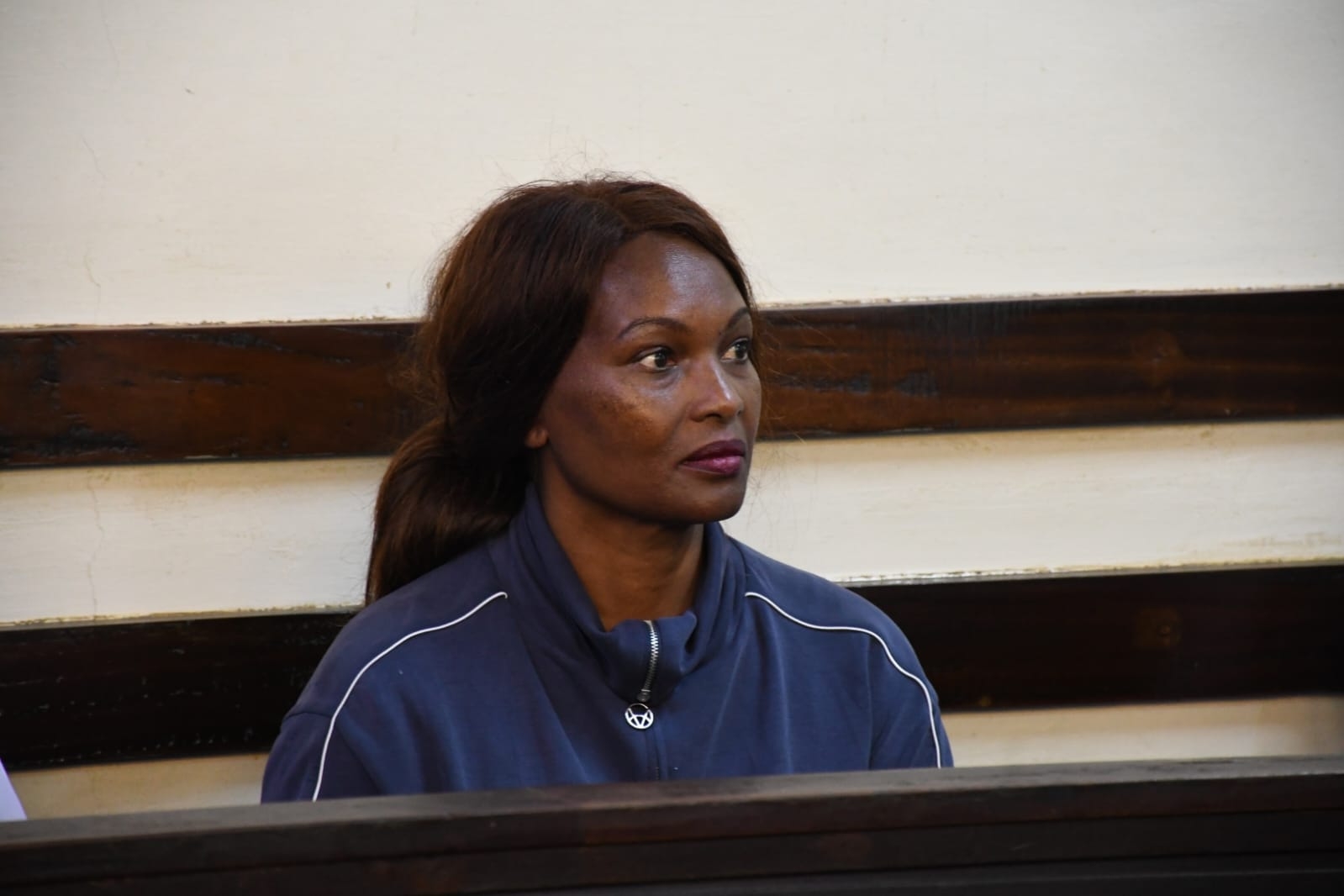![[PHOTOS] Uhuru leads Jubilee grassroots meeting in Murang’a](/_next/image?url=https%3A%2F%2Fcdn.radioafrica.digital%2Fimage%2F2025%2F11%2F0b2a49cd-52fb-4a92-b9dc-26e253825a4a.jpeg&w=3840&q=100)
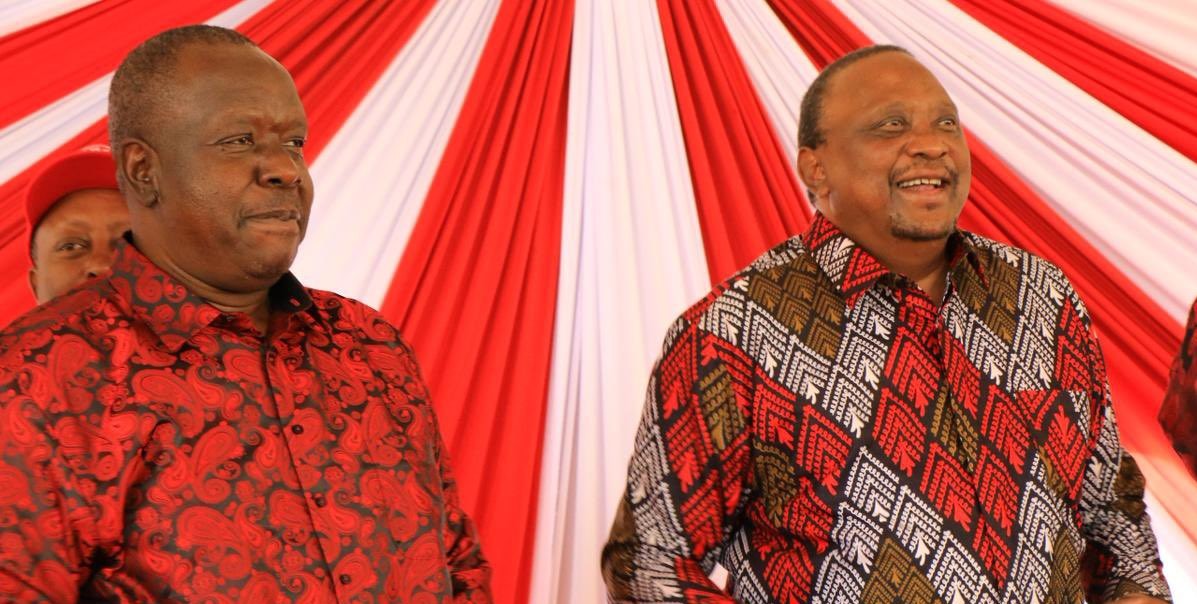 Former President Uhuru Kenyatta (R) and Jubilee presidential candidate Fred Matiang'i during delegates meeting at Thika Greens in Murang’a county, November 7, 2025. /HANDOUT
Former President Uhuru Kenyatta (R) and Jubilee presidential candidate Fred Matiang'i during delegates meeting at Thika Greens in Murang’a county, November 7, 2025. /HANDOUTFormer President Uhuru Kenyatta has revisited his 2022 warning to Mount Kenya voters about electing his then deputy William Ruto and the Kenya Kwanza administration to State House, saying his caution did not receive the attention it deserved.
Speaking Friday during a Jubilee Party delegates meeting at Thika Greens in Murang’a county, Uhuru expressed disappointment that the region ignored his cautionary message during the last general election.
“In 2022, I warned you about these people, but you didn’t listen to me. I hope now you are ready to support leaders who are genuinely committed to transforming this country,” he said.
The comment underscores a long-running frosty relationship between Uhuru and Ruto that has significantly reshaped Kenya’s political terrain.
The fallout traces its roots in the iconic March 9, 2018 handshake between Uhuru and the late opposition leader Raila Odinga, a reconciliation that exposed the bitter fallout between Uhuru and Ruto, which had hitherto, been a matter of speculaiton.
By early 2022, the once-united UhuRuto front was visibly fractured.
Uhuru formally backed Raila under the Azimio coalition, publicly affirming: “We have chosen Raila Odinga, without any opposition, to be the fifth president of Kenya.”
That declaration marked a dramatic inversion of the usual presidential-deputy relationship.
The public hostility escalated in campaign speeches. In August of that year, while speaking in Kiambu county, Uhuru warned Mount Kenya residents that they risked regret by voting for the now-President Ruto.
“You people from Mt Kenya region, if you elect Ruto, you will cry one day,” Uhuru said.
However, come election day, the Mount Kenya region voted overwhelmingly for Ruto who eventually won the election with 7.1 million votes (50.49 per cent) against Raila's 6.9 million (48.85 per cent).
Uhuru reminded delegates in Murang’a that the region must now rally behind visionary leadership and development-centric politics.
He called on leaders to create opportunities for the youth and urged young people to take an active role in shaping the country’s leadership.
“Young people should vote wisely in 2027 and support leaders who are ready to work with them,” he said, urging youth participation in the leadership selection process.
The former President noted that when he took over office in 2013, he first ensured the completion of projects initiated by his predecessor, the late Mwai Kibaki, as they were funded by taxpayers.
“For almost two years of my leadership, I completed Kibaki’s projects before starting my own. I thought this would be the same with the current administration,” he added.
The repercussions of the Uhuru–Ruto split extended beyond campaign rhetoric and have subsisted to date.
Jubilee’s alignment with Azimio shifted voter dynamics resulting to a sharply contested elections results with legal challenges and a broader debate about leadership realignment in Kenyan politics.
As Kenya approaches the 2027 election cycle, the reminder from Uhuru carries weight in a region long seen as a political stronghold, which is being eyed by many presidential hopefuls, including Ruto's former deputy Rigathi Gachagua, a key figure at the center of ongoing political realignments.
Whether Mount Kenya voters heed his call this time remains a central storyline in the evolving interplay between national ambition and local influence.


